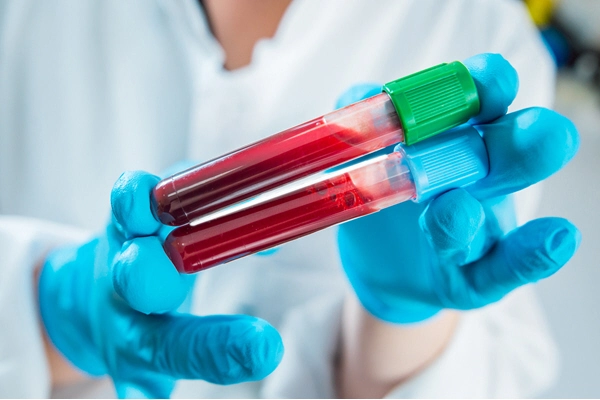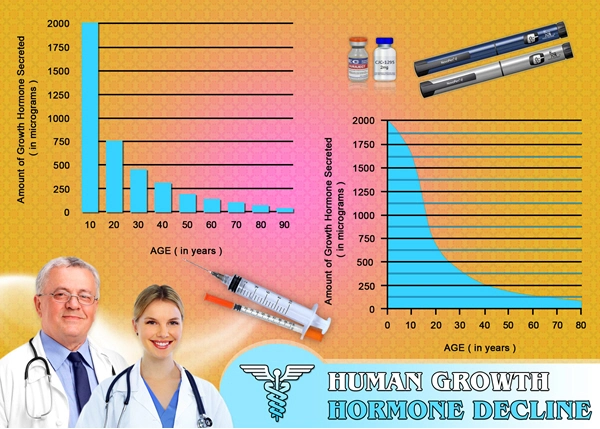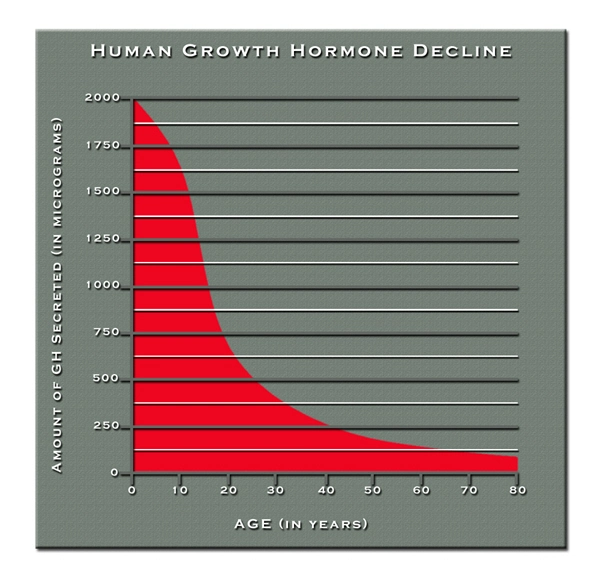Introduction to Prostate Health
Prostate health is a critical concern for American males, as the prostate gland plays a pivotal role in reproductive and urinary functions. As men age, the likelihood of developing prostate-related conditions, such as benign prostatic hyperplasia (BPH), prostatitis, and prostate cancer, increases significantly. Recent research has shed light on the potential impact of endocrine disruptors on prostate health, prompting a closer examination of these chemicals and their effects on the male population.
Understanding Endocrine Disruptors
Endocrine disruptors are chemicals that can interfere with the body's hormonal systems and disrupt normal physiological functions. These substances are found in various everyday products, including plastics, pesticides, and personal care items. Common endocrine disruptors include bisphenol A (BPA), phthalates, and certain pesticides like atrazine. These chemicals can mimic, block, or alter the effects of hormones, leading to adverse health outcomes.
The Link Between Endocrine Disruptors and Prostate Health
Emerging studies suggest a potential association between exposure to endocrine disruptors and the development of prostate diseases. For instance, BPA, a widely used chemical in plastic manufacturing, has been linked to an increased risk of prostate cancer in animal studies. Similarly, phthalates, found in many cosmetics and plastics, have been shown to affect prostate development and function in experimental models.
The mechanism by which endocrine disruptors impact prostate health is complex. These chemicals can alter hormone levels, particularly androgens, which are crucial for prostate growth and function. Disruptions in androgen signaling can lead to abnormal cell proliferation, potentially contributing to the development of BPH and prostate cancer. Furthermore, exposure to endocrine disruptors during critical developmental windows, such as in utero or during puberty, may have long-lasting effects on prostate health.
Exposure and Risk Factors
American males are exposed to endocrine disruptors through various sources, including diet, water, and consumer products. Processed foods, which often contain packaging materials with BPA and phthalates, are a significant source of exposure. Additionally, occupational exposure, particularly in industries dealing with plastics and pesticides, can increase the risk of encountering these harmful chemicals.
Certain demographic factors may also influence exposure levels and susceptibility to prostate diseases. For example, African American men have a higher incidence of prostate cancer, and research suggests that environmental factors, including exposure to endocrine disruptors, may play a role in this disparity.
Mitigating the Impact of Endocrine Disruptors
To reduce the potential impact of endocrine disruptors on prostate health, American males can take several proactive steps. First, minimizing exposure to these chemicals is crucial. This can be achieved by choosing fresh, unprocessed foods, using BPA-free products, and avoiding plastics labeled with recycling codes 3 and 7, which are more likely to contain harmful chemicals.
Regular screening for prostate health is also essential, particularly for men over the age of 50 or those with a family history of prostate cancer. Early detection can significantly improve outcomes and allow for timely intervention.
Conclusion: A Call to Action
The potential impact of endocrine disruptors on prostate health underscores the need for increased awareness and action among American males. By understanding the sources of exposure and taking steps to minimize contact with these chemicals, men can better protect their prostate health. Additionally, advocating for stricter regulations on the use of endocrine disruptors in consumer products can help safeguard public health. As research continues to unravel the complex relationship between these chemicals and prostate diseases, staying informed and proactive remains paramount for the well-being of American males.

- Prostate Health in Aging Men: Understanding Changes and Management Strategies [Last Updated On: March 8th, 2025] [Originally Added On: March 8th, 2025]
- Prostate Cancer Survivorship: Managing Health and Well-being Post-Treatment [Last Updated On: March 16th, 2025] [Originally Added On: March 16th, 2025]
- Prostate Cancer's Psychological Impact and Holistic Care Strategies for American Men [Last Updated On: March 17th, 2025] [Originally Added On: March 17th, 2025]
- Optimal Exercise Practices for Enhancing Prostate Health in American Men [Last Updated On: March 17th, 2025] [Originally Added On: March 17th, 2025]
- Prostate Cancer Screening: Navigating Controversies and Making Informed Decisions [Last Updated On: March 18th, 2025] [Originally Added On: March 18th, 2025]
- Prostate Health: Understanding Family History and Genetic Risks for American Men [Last Updated On: March 18th, 2025] [Originally Added On: March 18th, 2025]
- Understanding BPH: Prevalence, Symptoms, Diagnosis, and Management in American Men [Last Updated On: March 18th, 2025] [Originally Added On: March 18th, 2025]
- Prostate Health: Understanding Symptoms, Screening, and Lifestyle Impact on American Men [Last Updated On: March 18th, 2025] [Originally Added On: March 18th, 2025]
- Prostate Cancer Treatments: Side Effects and Management Strategies for American Men [Last Updated On: March 20th, 2025] [Originally Added On: March 20th, 2025]
- Prostate Health: Understanding Risks and Enhancing Wellness in American Men [Last Updated On: March 20th, 2025] [Originally Added On: March 20th, 2025]
- Dietary Strategies for Enhancing Prostate Health in American Men [Last Updated On: March 20th, 2025] [Originally Added On: March 20th, 2025]
- Prostate Health and Cardiovascular Disease: Shared Risks and Integrated Care Strategies [Last Updated On: March 20th, 2025] [Originally Added On: March 20th, 2025]
- Stress Impact on Prostate Health: Management Strategies for American Men [Last Updated On: March 21st, 2025] [Originally Added On: March 21st, 2025]
- Prostate Cancer's Impact on Fertility: Treatment Effects and Preservation Options [Last Updated On: March 22nd, 2025] [Originally Added On: March 22nd, 2025]
- Prostate Health: Benefits and Types of Exercise for American Men [Last Updated On: March 22nd, 2025] [Originally Added On: March 22nd, 2025]
- Prostate Cancer and Radiation Therapy: Benefits, Advances, and Considerations for American Males [Last Updated On: March 22nd, 2025] [Originally Added On: March 22nd, 2025]
- Active Surveillance: A Key Strategy for Managing Low-Risk Prostate Cancer in American Men [Last Updated On: March 22nd, 2025] [Originally Added On: March 22nd, 2025]
- Prostate Health: Foods to Avoid for Prevention of Cancer and BPH [Last Updated On: March 23rd, 2025] [Originally Added On: March 23rd, 2025]
- Sleep Quality's Impact on Prostate Health: Hormones and Practical Sleep Tips [Last Updated On: March 24th, 2025] [Originally Added On: March 24th, 2025]
- Targeted Therapy for Prostate Cancer: Insights for American Men's Health [Last Updated On: March 24th, 2025] [Originally Added On: March 24th, 2025]
- Hormone Therapy in Prostate Cancer: Benefits, Challenges, and Future for American Men [Last Updated On: March 24th, 2025] [Originally Added On: March 24th, 2025]
- Chemotherapy's Role and Impact on Prostate Cancer in American Men [Last Updated On: March 24th, 2025] [Originally Added On: March 24th, 2025]
- Prostate Cancer and Cryotherapy: A Minimally Invasive Treatment Option for American Men [Last Updated On: March 25th, 2025] [Originally Added On: March 25th, 2025]
- Antioxidants and Prostate Health: Diet, Supplements, and Lifestyle for American Males [Last Updated On: March 25th, 2025] [Originally Added On: March 25th, 2025]
- Selenium's Role in Enhancing Prostate Health: Benefits and Dietary Sources [Last Updated On: March 25th, 2025] [Originally Added On: March 25th, 2025]
- Green Tea Benefits for Prostate Health in American Males [Last Updated On: March 25th, 2025] [Originally Added On: March 25th, 2025]
- Prostate and Bone Health: Critical Links and Management Strategies for American Males [Last Updated On: March 25th, 2025] [Originally Added On: March 25th, 2025]
- Vitamin D's Crucial Role in Prostate Health for American Males [Last Updated On: March 25th, 2025] [Originally Added On: March 25th, 2025]
- HIFU: A Promising Non-Surgical Option for Prostate Cancer Treatment [Last Updated On: March 25th, 2025] [Originally Added On: March 25th, 2025]
- Alcohol Consumption's Impact on Prostate Health: Risks and Benefits for American Men [Last Updated On: March 25th, 2025] [Originally Added On: March 25th, 2025]
- Hydration's Crucial Role in Maintaining Prostate Health for American Males [Last Updated On: March 25th, 2025] [Originally Added On: March 25th, 2025]
- Brachytherapy: Targeted Prostate Cancer Treatment Options and Considerations [Last Updated On: March 26th, 2025] [Originally Added On: March 26th, 2025]
- Heavy Metals' Impact on Prostate Health: Risks, Mechanisms, and Prevention Strategies [Last Updated On: March 26th, 2025] [Originally Added On: March 26th, 2025]
- Zinc's Crucial Role in Prostate Health for American Males [Last Updated On: March 26th, 2025] [Originally Added On: March 26th, 2025]
- Photodynamic Therapy: A Promising, Less Invasive Treatment for Prostate Cancer in American Men [Last Updated On: March 26th, 2025] [Originally Added On: March 26th, 2025]
- Omega-3 Fatty Acids: Enhancing Prostate Health in American Males [Last Updated On: March 26th, 2025] [Originally Added On: March 26th, 2025]
- Prostate Cancer: Stages, Grades, and Treatment Options for American Men [Last Updated On: March 26th, 2025] [Originally Added On: March 26th, 2025]
- Immunotherapy: A New Hope for Prostate Cancer Treatment in American Men [Last Updated On: March 26th, 2025] [Originally Added On: March 26th, 2025]
- Environmental Factors and Prostate Health: Risks and Preventive Measures for American Males [Last Updated On: March 27th, 2025] [Originally Added On: March 27th, 2025]
- Air Pollution's Impact on Prostate Health: Risks and Protective Measures for American Men [Last Updated On: March 27th, 2025] [Originally Added On: March 27th, 2025]
- Prostate Cancer Support Groups: Emotional Aid and Empowerment for American Men [Last Updated On: March 27th, 2025] [Originally Added On: March 27th, 2025]
- Prostate Cancer Management: Understanding Watchful Waiting and Its Implications [Last Updated On: March 27th, 2025] [Originally Added On: March 27th, 2025]
- Proton Therapy: A Targeted Approach to Treating Prostate Cancer in American Men [Last Updated On: March 27th, 2025] [Originally Added On: March 27th, 2025]
- Pesticides and Prostate Health: Risks, Mechanisms, and Preventive Measures for American Males [Last Updated On: March 27th, 2025] [Originally Added On: March 27th, 2025]
- Lycopene's Role in Enhancing Prostate Health: Prevention and Management Strategies [Last Updated On: March 27th, 2025] [Originally Added On: March 27th, 2025]
- Chemoprevention Strategies for Prostate Cancer Prevention in American Men [Last Updated On: March 27th, 2025] [Originally Added On: March 27th, 2025]
- Plastics and Prostate Health: Risks, Research, and Reduction Strategies for American Males [Last Updated On: March 28th, 2025] [Originally Added On: March 28th, 2025]
- Chronic Inflammation's Impact on Prostate Health in American Males: Prevention and Management [Last Updated On: March 28th, 2025] [Originally Added On: March 28th, 2025]
- Palliative Care's Vital Role in Enhancing Prostate Cancer Patients' Quality of Life [Last Updated On: March 28th, 2025] [Originally Added On: March 28th, 2025]
- CyberKnife Radiosurgery: Precision Treatment for Prostate Cancer in American Men [Last Updated On: March 29th, 2025] [Originally Added On: March 29th, 2025]
- Vitamin E's Role in Prostate Health: Benefits and Dietary Sources [Last Updated On: March 29th, 2025] [Originally Added On: March 29th, 2025]
- Prostate Cancer Surgery: Benefits, Risks, and Choosing the Right Approach [Last Updated On: March 30th, 2025] [Originally Added On: March 30th, 2025]
- EMFs and Prostate Health: Risks, Mechanisms, and Mitigation Strategies for American Males [Last Updated On: March 31st, 2025] [Originally Added On: March 31st, 2025]
- Robotic Surgery for Prostate Cancer: Benefits, Procedure, and Recovery Insights [Last Updated On: March 31st, 2025] [Originally Added On: March 31st, 2025]
- Prostate Cancer and Focal Therapy: A Targeted Approach for American Men [Last Updated On: April 2nd, 2025] [Originally Added On: April 2nd, 2025]
- Cruciferous Vegetables: Enhancing Prostate Health in American Males [Last Updated On: April 2nd, 2025] [Originally Added On: April 2nd, 2025]
- Laparoscopic Surgery for Prostate Cancer: Benefits, Procedure, and Recovery for American Men [Last Updated On: April 8th, 2025] [Originally Added On: April 8th, 2025]
- Industrial Chemicals and Prostate Health: Risks and Mitigation for American Males [Last Updated On: April 8th, 2025] [Originally Added On: April 8th, 2025]
- Prostate Cancer Management: The Role and Future of Neoadjuvant Therapy [Last Updated On: April 9th, 2025] [Originally Added On: April 9th, 2025]
- Palliative Surgery for Prostate Cancer: Enhancing Quality of Life for American Men [Last Updated On: April 9th, 2025] [Originally Added On: April 9th, 2025]
- Soy's Role in Enhancing Prostate Health: Benefits and Dietary Integration [Last Updated On: April 9th, 2025] [Originally Added On: April 9th, 2025]
- Salvage Therapy: A Second Chance for American Men with Recurrent Prostate Cancer [Last Updated On: April 10th, 2025] [Originally Added On: April 10th, 2025]
- Prostate Health: Medications, Risks, and Lifestyle Management for American Males [Last Updated On: April 12th, 2025] [Originally Added On: April 12th, 2025]
- Flaxseed: A Natural Approach to Enhancing Prostate Health in American Males [Last Updated On: April 13th, 2025] [Originally Added On: April 13th, 2025]
- Adjuvant Therapy in Prostate Cancer: Hormonal, Radiation, and Chemotherapy Roles [Last Updated On: April 13th, 2025] [Originally Added On: April 13th, 2025]



List of USA state clinics - click a flag below for blood testing clinics.
Word Count: 565



















































